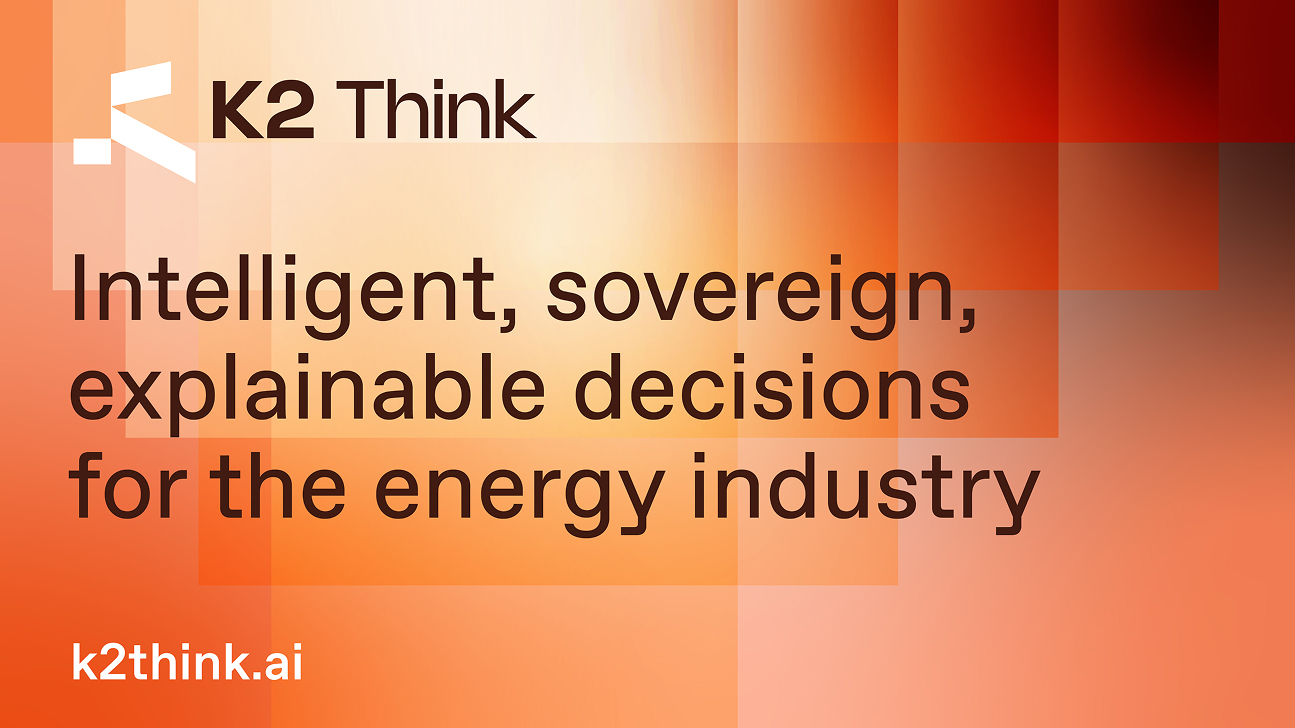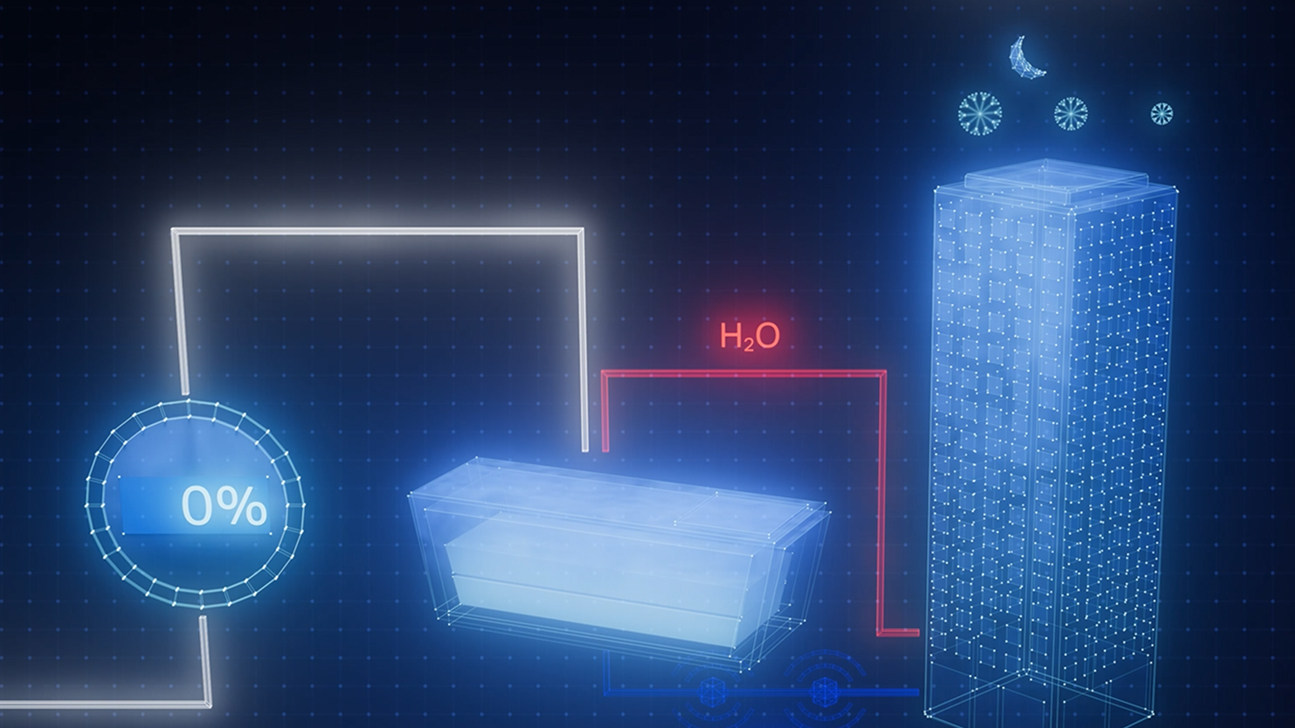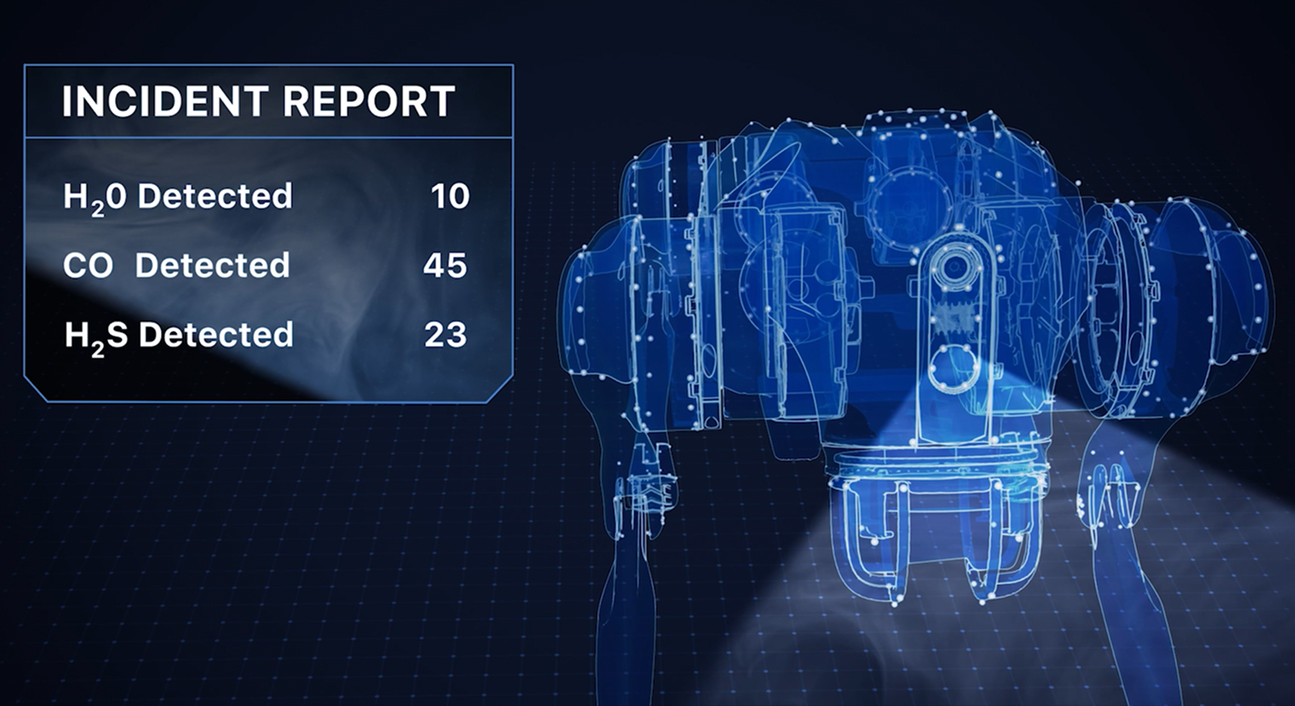A researcher’s life – Cengiz shares her story
Monday, March 07, 2022
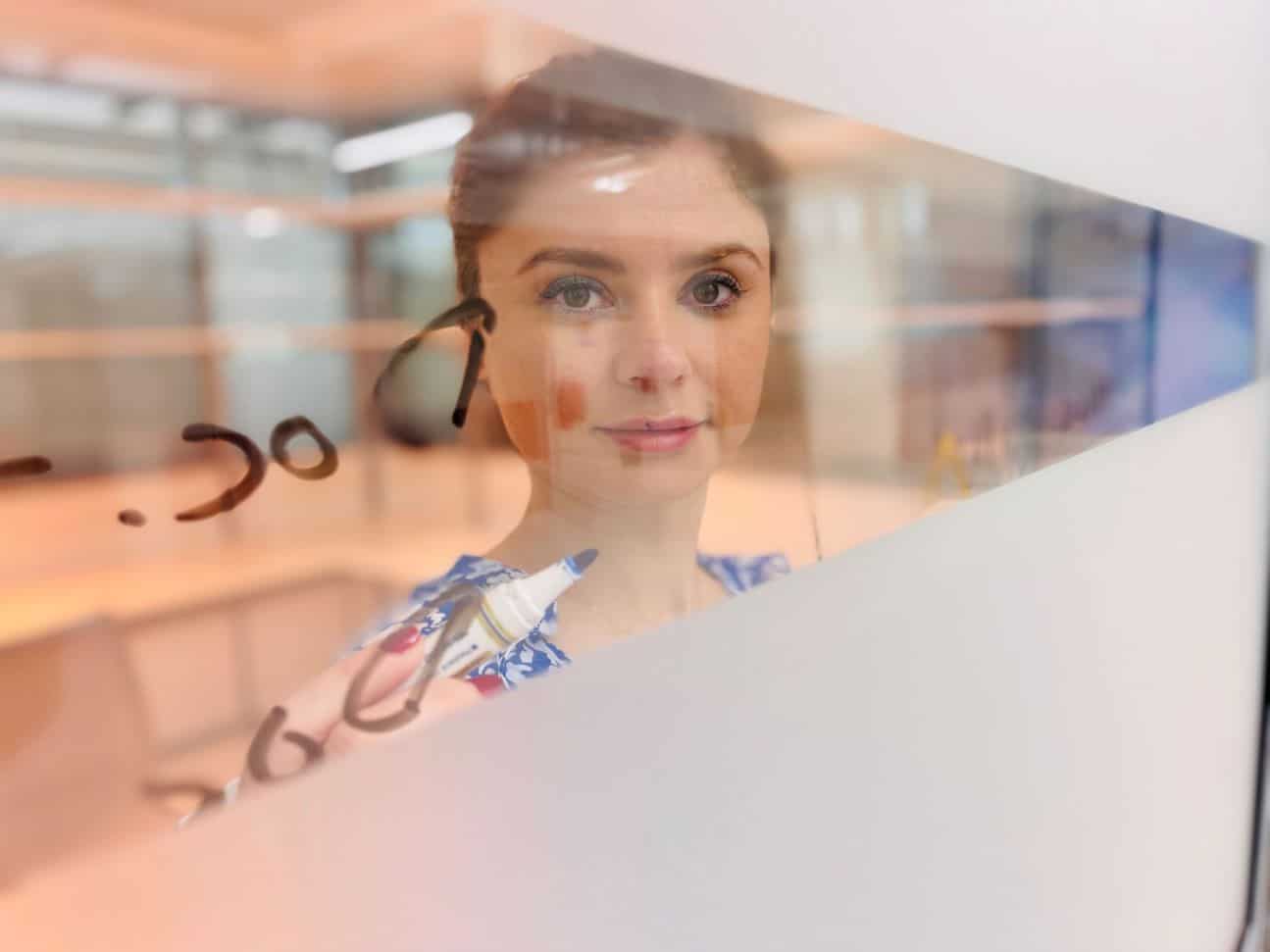
Having diverse role models in STEM – science, technology, engineering, and mathematics – will inspire the next generation of women in the field. That is what encouraged Sevim Cengiz, who after becoming a biomedical engineer, decided to teach herself to code and enter the realm of artificial intelligence (AI).Cengiz is a Ph.D. candidate in the Computational Imaging Lab (CIL) at Boğaziçi University in Istanbul, Turkey, a part-time research assistant in the BioMedical Image Analysis (BioMedIA) lab at Mohamed bin Zayed University of Artificial Intelligence (MBZUAI) in Abu Dhabi, UAE, and a mother of two.
Women inspire women
Cengiz names her Ph.D. supervisor Dr. Esin Öztürk Işık (UC Berkeley) as her inspiration to continue her studies and strive for a dedicated career in academia.
[wps_pull-out-quote-right content=”…I belong in research and academia, and even though it isn’t regular hours, it is rewarding. ” surename=”Sevim Cengiz” source=”MBZUAI Research Assistant”]Globally, women in science have achieved numerical parity (45–55%) at the bachelor’s and master’s levels of study and are on the cusp at the Ph.D. level (44%). But according to a 2018 UNESCO report: “women are not benefitting fully from employment opportunities open to highly educated and skilled experts in cutting edge fields such as artificial intelligence where only one in five professionals (22%) is a woman.”
The gender gap widens as women progress in their academic careers, with lower representation from doctoral student to assistant professor to full professor. Overall, female researchers represent 33.3% of all researchers and tend to get smaller research grants; only 12% of members of national science academies are women.
Cengiz is proud to be a woman working in STEM research. “Instead of pursuing a career in industry where I didn’t feel like I was constantly producing something; now I am producing something to make things better,” Cengiz said. “We are always researching and looking at new data sets to improve the way things are done. I’m really happy in academic life and I love being a scientist.”
Supporters on the sidelines
Neither of Cengiz’s parents worked in STEM – her dad was an accountant and her mother a stay-at-home housewife – but she said she grew up with a terrific support system.
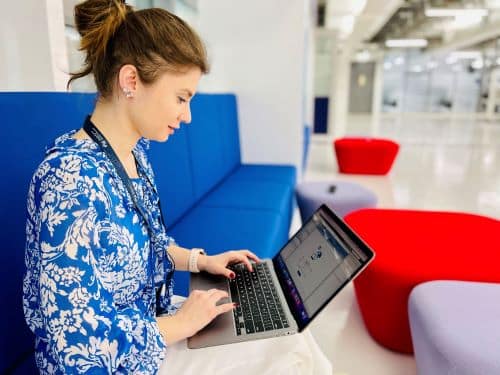 “My parents are the real supporters in my life,” Cengiz said. “Not only before but also after marriage; they always support me. Before university, my dad sold his car to fund the fees of my private teacher who visited our home for one to two hours to teach me the topics that I didn’t know. My dad believes that every girl should go to university so they can have their own money and own dreams. They visit from Turkey often to look after the kids too.”
“My parents are the real supporters in my life,” Cengiz said. “Not only before but also after marriage; they always support me. Before university, my dad sold his car to fund the fees of my private teacher who visited our home for one to two hours to teach me the topics that I didn’t know. My dad believes that every girl should go to university so they can have their own money and own dreams. They visit from Turkey often to look after the kids too.”
The move to Dubai in 2017 was difficult and Cengiz admits that continuing her Ph.D. by distance would not have been possible without the support she received from Ozturk Isik; MBZUAI’s Dr. Mohammad Yaqub; her husband; and her parents and parents-in-law.
“My advisor is really cool, and she always supports women in research and academic life because she’s a mom too,” Cengiz said. “She’s had the same experience I am having now. She told me that I can do it, we can manage it, we can work as a team. She trusts me, and I trust her.”
“Dr. Yaqub also encouraged me to concentrate on my Ph.D. – this is how women can have such roles in academic life,” Cengiz continued. “You need to manage your family, spend time with your kids, and work and do research. It would be more difficult to do all these things in my home country. This country is more flexible in its approach to balancing work and life.
“My husband, who is a software developer, often asks me why I do not want to work in industry and work nine to five,” Cengiz said. “I often judge myself too and think ‘is this the right way?’ as I’m six years into my Ph.D. But I tell him that I belong in research and academia, and even though it isn’t regular hours, it is rewarding. I hope to make a difference in the medical field and help people.”
The research is the reward
Research, research, research. This is what you’ll find Cengiz reveling in. She recently completed a paper with Dr. Yaqub titled “Automatic Fetal Gestational Age Estimation from First Trimester Scans”. The paper has led to more accurate Crown Rump Length (CRL) and Gestational Age (GA) estimates from first trimester scans thanks to an AI based algorithm that Cengiz and Yaqub have been developing.
“These kinds of measurements depend on the sonographer’s experience,” Cengiz said. “Sometimes the fetal ultrasound images are not clear, or the baby may be very active. Our aim was to create a pipeline and segment the fetal head and the body to calculate CRL for more robust GA estimation.”
Cengiz has a master’s degree in biomedical engineering (2013-2016) and is in the final stages of her Ph.D. in biomedical engineering, both with Boğaziçi University. Her current research focuses on magnetic resonance spectroscopic imaging (MRSI) data analysis, and super resolution of MRSI based on new deep learning techniques.
She is also interested in open-source contributions and together with Öztürk Işık and others created Oryx-MRSI, a fully automated and user-friendly data analysis software that can be used for a comprehensive MRSI analysis of the human brain. It includes several new functionalities, including chemical shift correction, CSF corrected metabolite map generation, registration of metabolite maps onto MNI152 brain atlas, and region of interest analysis at brain regions.
“We worked in collaboration with the department of neurology, Istanbul Faculty of Medicine at Istanbul University in Turkey,” Cengiz said. “We acquired many MRI and MRSI data from Parkinson’s patients with different stages, and we also found other volunteers to be involved so that we could evaluate metabolic changes that occurred in the brain of Parkinson’s patients with mild cognitive impairment.”
MBZUAI wants to celebrate International Women’s Day 2022 and the vital work women do in STEM from our students to our researchers to our faculty member, Professor Najwa Aaraj. #BreakTheBias is this year’s theme, and it is vital in machine learning and AI to have gender equality. Equal representation eliminates bias in research and development.
- research ,
- healthcare ,
- computer vision ,
- women in AI ,
- biomedical ,
Related
Intelligent, sovereign, explainable energy decisions: powered by open-source AI reasoning
As energy pressures mount, MBZUAI’s K2 Think platform offers a potential breakthrough in decision-making clarity.
- case study ,
- ADIPEC ,
- K2 Think ,
- IFM ,
- reasoning ,
- llm ,
- energy ,
- innovation ,
- research ,
Cooling more people with fewer emissions: intelligent, efficient cooling with AI and ice batteries
MBZUAI's Martin Takáč is leading research to develop an AI-driven energy management system that optimizes the use.....
- energy ,
- cooling ,
- solar ,
- ADIPEC ,
- sustainability ,
- innovation ,
- research ,
Faster, safer and smarter inspection: AI-powered robotics for industrial safety
MBZUAI's autonomous robotic system, LAIKA, is designed to enter and analyze complex industrial environments – reducing the.....
- research ,
- autonomous ,
- case study ,
- innovation ,
- infrastructure ,
- energy ,
- industry ,
- robotics ,
